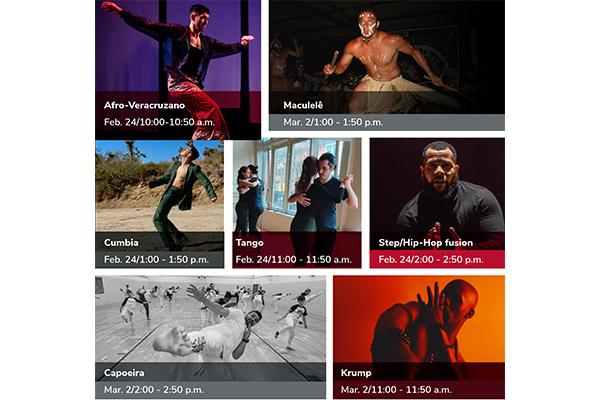
Sat, February 24, 2024
10:00 am - 2:50 pm
250 Sullivant Hall
The Center for Latin American Studies and the Department of Dance invite you to the "Afro Diasporic Dances: Latin America and the U.S." workshop series.
As part of the Black History Month events from CLAS, this series aims to celebrate the contributions of Afro-Latin and African-American cultural practices. The workshops will be facilitated by the Department of Dance Faculty members and guest teachers.
The event is open to the public and registration is required.
Please bring comfortable clothes to move in.
